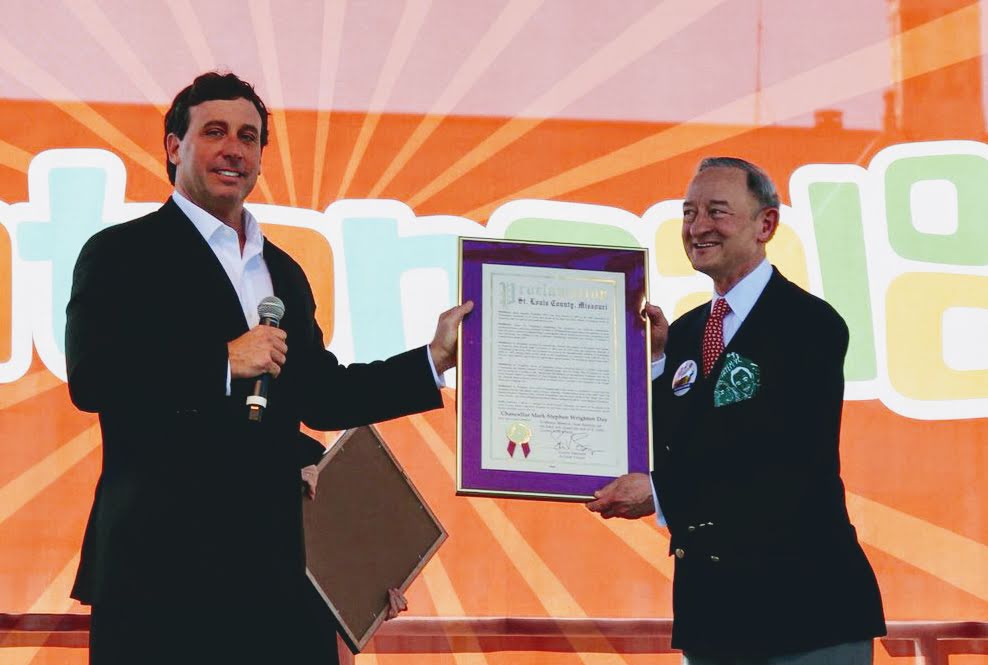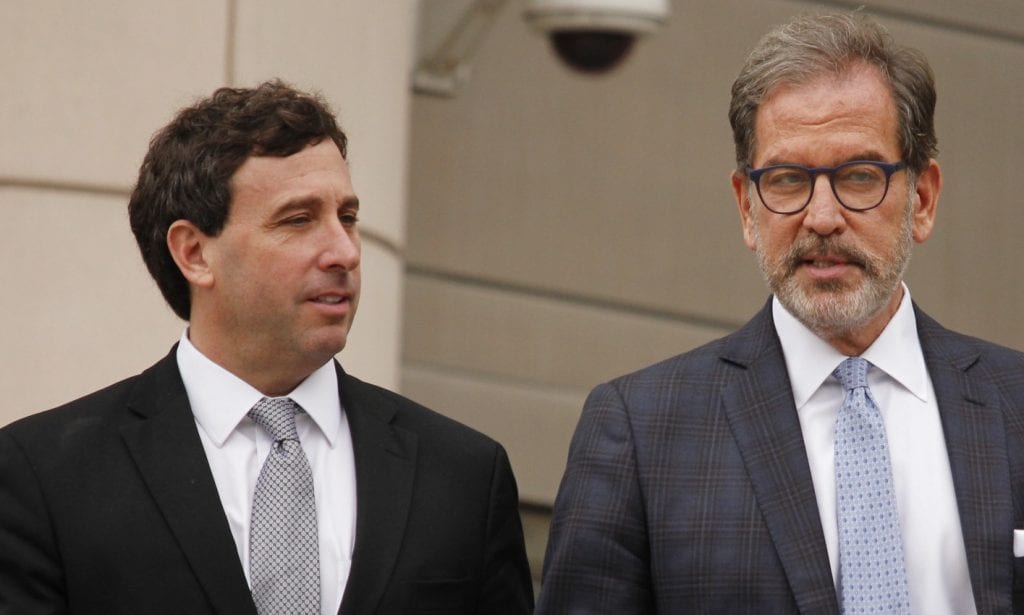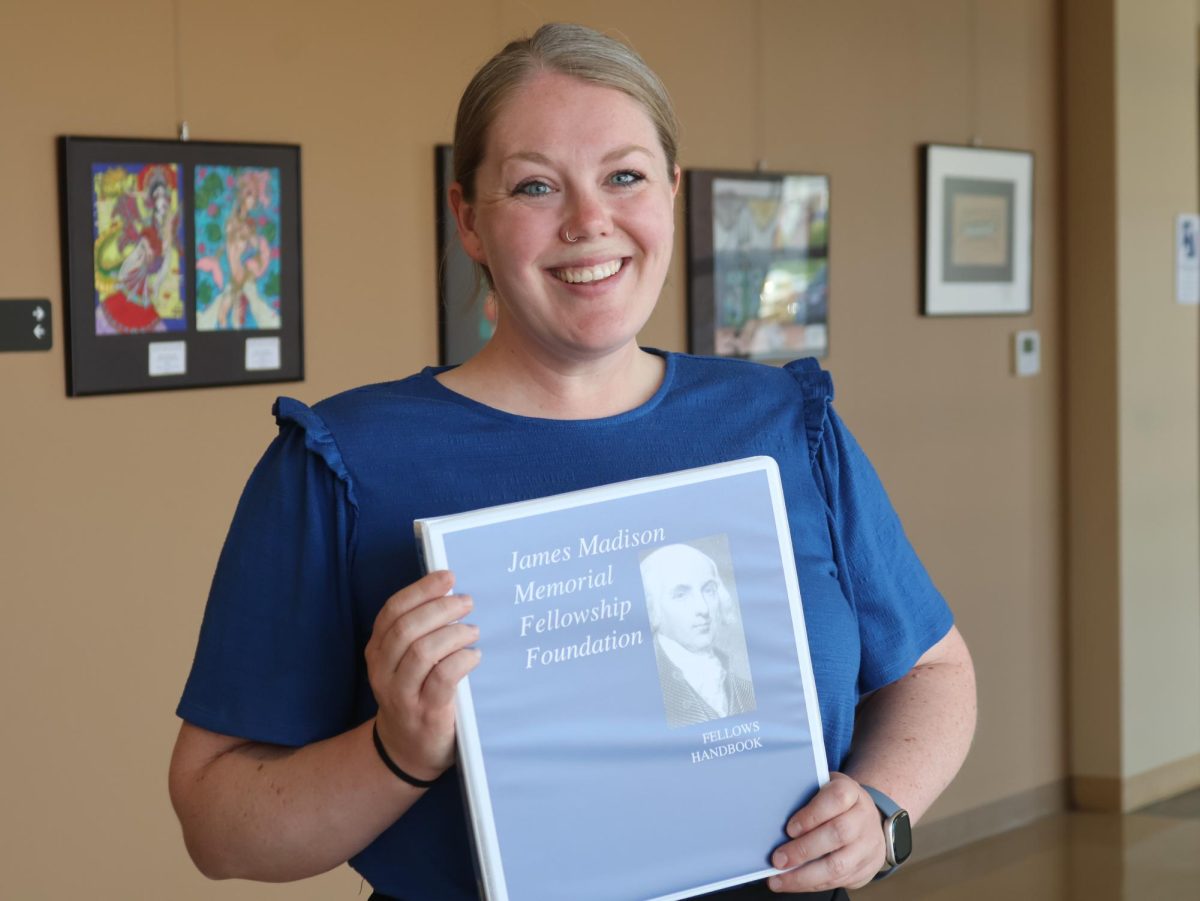By Gloria Lloyd
News Editor
glorialloyd@callnewspapers.com
Federal prosecutors argued in court documents filed last week that former County Executive Steve Stenger should not receive a lower prison sentence than the recommended three to four years because he was a bully who treated St. Louis County as his fiefdom, rewarding campaign donors at the expense of the public he was elected to serve.
Stenger is set to be sentenced at 1:30 p.m. Friday, Aug. 9, by U.S. District Judge Catherine D. Perry. He pleaded guilty to felony corruption charges of bribery, theft of honest services and mail fraud in May, eight days after a grand jury indicted him and five days after resigning office as county executive.
“How does one even begin to measure the loss of trust in its leaders by the citizens of St. Louis County as a result of defendant’s crimes?” Assistant U.S. Attorney Hal Goldsmith wrote to Perry.
“Justice and fairness” demand that Stenger not receive any sentence lighter than the 37 to 46 months recommended under federal sentencing guidelines, prosecutors argued in the 12-page memo. But Perry can go above or below that.
Stenger’s attorneys responded in a separate memo filed Sunday, in which they argued for a 37-month sentence based on his contrition and devotion to his family.
After cataloguing a long list of Stenger’s actions as recently as last year, backed by wiretapped conversations apparently captured in Stenger’s own office, the federal government wrote in its memo that Stenger is not remorseful for his crime despite his May 3 guilty plea to three felony charges, was not a public servant and never held office with the civic-minded idea of doing what’s best for St. Louis County. And since the county is the largest one in the state of Missouri, they argued that his deeds had a statewide impact that should be taken into account in sentencing.
They also argued that Stenger shouldn’t get a break for surrendering his law license and his license as a certified public accountant or resigning his office as county executive, since those actions would have all happened anyway once he was convicted.
Instead, prosecutors suggested that Stenger should be held to a higher standard because of his status. Anything else would be “tantamount to favoring criminals with privileged backgrounds,” the memo stated.
In a series of quotes from wiretapped private conversations, federal prosecutors paint a picture of what they characterize as Stenger’s “vindictive nature and character.” They said he was already ordering employees to direct county contracts to certain donors even before he was elected, and continued throughout his tenure.
He took positions against the people if it meant more power for himself, prosecutors said. He advocated the end of St. Louis County partly in order to “wipe out” the County Council because of the way it opposed him at every turn. But his primary reason for backing the merger was because he wanted to increase his power base as “metro mayor” of the promised new megacity. And as an “insurance policy” to ensure the loyalty of Better Together backer and billionaire megadonor Rex Sinquefield, Stenger hired the husband of Sinquefield’s chief of staff to a $130,000 county job doing nothing beyond working on the merger plan.
He threatened to fire county employees if they disagreed with him, including his own appointee County Counselor Peter Krane after they disagreed on a single issue this year. He said he would try to get then-County Council Chairman Sam Page fired from his position as an anesthesiologist with a hospital. And he promised to block a $7 million regional contract to a contractor because the man’s mother was a former state legislator who opposed Stenger.
As for St. Louis Economic Development Partnership CEO Sheila Sweeney, who faces sentencing next week, Stenger appointed her because “he knew he could manipulate and control her,” Goldsmith wrote. To that same end, Stenger hired his cronies or their relatives into the 52 non-merit county jobs he had power to appoint as county executive, and bragged about the power that granted him.
Overall, his behavior shows that Stenger had a “flagrant disregard for the interests of those he was elected to serve,” the government wrote.
Stenger always claimed that his campaign donations were not a personal benefit for him. But prosecutors didn’t see it that way, noting that “the fact that he used the bribes to fuel his political campaigns freed up his own funds to use for his own personal lifestyle.”
Near the beginning of his political career, Stenger loaned his campaign $400,000, and finally paid himself back from his campaign account in November 2018, after winning re-election for the second time.
“He treated important government contracts and grants as something to barter away as if they were his own personal thank you gifts,” prosecutors wrote.
Referring to his potential perch atop St. Louis as metro mayor, at one point Stenger said, “… Then I can get my money.”
And while Stenger’s personal history and characteristics aside from his conduct on the job might seem to be sterling, prosecutors countered that characterization from Stenger’s lawyers by including a series of provocative, expletive-laced quotes captured on wiretaps.
Stenger’s true character is shown in the cavalier way he treated his important job and the residents of the county he represented, prosecutors wrote. They argue that all he cared about was getting re-elected, but only to perpetuate his power, and primarily to become the Better Together “metro mayor.”
The memo alleges Stenger “checked out” during 2018, uninterested in running the county itself and consumed with trying to win re-election in the August Democratic primary and the November election.
After he won, he told his executive staff Nov. 7, “How ‘bout that motherf—ers? I don’t show up to the council meetings. I don’t do f—ing s—. I’ve been sitting at my house for the past two months f—ing raising money and then won by 20 percent! The world’s a f—ed up place.”
After getting re-elected, Stenger’s top priority was ensuring that Better Together’s city-county merger went through with a planned statewide vote in 2020 — but only if Stenger headlined the whole venture as “metro mayor” of a newly combined St. Louis County and city of St. Louis.
Despite earning another four years leading the county, Stenger had no interest in finishing that term, he told his executive staff — and, unbeknownst to him, federal agents listening in.
“And in my second term I really don’t want to do anything, I just don’t. If we don’t get 2020 done I’d have to reevaluate, I don’t know if I want to do another four years, it just depends what it looks like,” Stenger said Oct. 9.





















